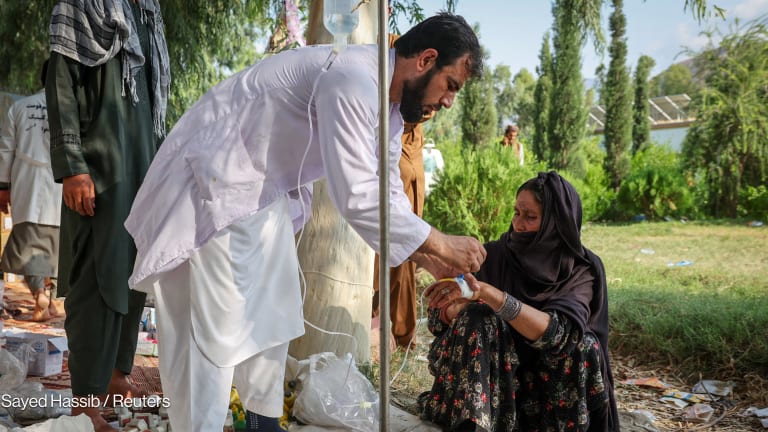
As the planned withdrawal of United States forces from Afghanistan continues toward the Sept. 11 deadline, fear and anxiety also continue to grow among Afghans. The country still faces threats from terrorist groups, including the al-Qaida network, and a possible comeback by the Taliban once the U.S. and NATO forces leave the country.
Afghanistan’s strategic partners in the West continuously reassure the Afghan government and people that a reinstated Taliban emirate will not be recognized. Afghans fear that the foreign forces’ withdrawal will lead to a civil war and the resurgence of terrorism.
Many Afghans, particularly the country’s new generation, believe that a hasty and irresponsible withdrawal will jeopardize the gains Afghanistan made in the past two decades in the areas of democracy, human rights, press freedom, women’s rights, and civil liberties.
U.S. President Joe Biden’s decision to end America’s war in Afghanistan will be good policy for some people around him in Washington, both from a financial and foreign policy perspective. But the ground reality is totally different from the narrative that exists among Biden’s strategists. For instance, what the Afghans experienced after the US-Taliban peace deal in Doha last February — mainly increased violence — does not inspire confidence in future deals.
Leaving Afghanistan on its own after the withdrawal will have a serious effect on international stability. ... Afghanistan wants to export talent to the world, not terrorism.
—The U.S. and NATO withdrawals come as the killings of Afghan civilians continue to rise significantly, with the number of civilians killed and injured during the first three months of 2021 being significantly higher than the same period last year, according to the United Nations Afghanistan mission quarterly report on civilian casualties in the Afghan conflict.
Young Afghans, including myself, believe that all of these attacks indicate that the increased isolation of Afghanistan will increase the scale of human catastrophe as terrorism and extremism go unchecked.
Sidelining or forgetting Afghanistan’s challenges and downplaying a possible comeback by the militants could inflict a devastating blow not just to Afghanistan but also to international peace and security.
Even within the U.S. intelligence community, there is the view that the Taliban could largely retake Afghanistan within the span of a few years if American troops leave and the Afghan warring parties do not reach a political settlement before the foreign troops’ withdrawal.
Many Afghans have concerns that the U.S. withdrawal from the country will once again change their country into a hub of international terrorism. The Afghan women who gained a new reputation in the post-Taliban era have serious apprehensions that a possible takeover of the country by the militants will lead to the imposition of hardline restrictions on them.
Although the Afghan security officials have assured the Afghan public that the Afghan National Security and Defense Forces are committed to defending the nation’s borders against any hostile moves and provocations, the threats that originate from terrorism are much more complex and sophisticated compared to the conventional wars on the battleground.
According to a recent U.N. report, the Taliban “now contest or control an estimated 50 to 70 percent of Afghan territory outside of urban centres, while also exerting direct control over 57 percent of district administrative centres.” The U.N. also said that al-Qaida's Indian subcontinent branch was also operating under cover of the Taliban.
The Taliban has a new feeling of victory in their minds, instead of showing flexibility, as expected by the world, to merge as a political force. Although the Taliban are a reality of the Afghan society, they have not laid out any logical and comprehensive road map to resolve the conflict in the country through diplomatic and political means.
What the Biden administration and Afghanistan’s partners need to know is that Afghanistan began a new chapter in world politics following the downfall of the Taliban regime in 2001. Before the U.S. invasion, the country was in total isolation internationally. Millions of Afghans live outside the country to escape prosecution and systematic discrimination based on their religious beliefs, ethnicity, and political affiliation.
Women were subjected to severe restrictions — banned from getting an education or coming out of their homes without a custodian or guardian. The fundamentalist restrictions left a devastating mark on the identity of Afghans as a nation.
Leaving Afghanistan on its own after the withdrawal will have a serious effect on international stability. Today’s generation of Afghans wants to live in peace with other nations. Afghanistan wants to export talent to the world, not terrorism.
The international community needs to continue supporting Afghanistan in its strides toward moderation and democracy, to save it from the terrorist groups that eye to change it into a center of extremism and opium production. A possible collapse of the political system in Afghanistan will again pave the way for international terrorism to make their sanctuaries, threatening the peace and security of the entire world.
Most of the people in Afghanistan want to live in peace and solidarity with all nations. To make this happen, the U.N, U.S., and all other parties involved in the Afghan conflict need to support the country’s armed forces in their campaign against militancy.








